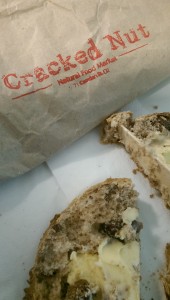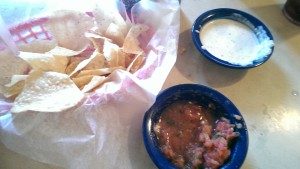A second post in an unintentional series on road trips
On a sunny Thursday in October 2019, I was in a car with two octogenarians driving toward Memphis, Tennessee. We were on Interstate 40 having just passed through Little Rock, Arkansas. I was at the wheel of a Chrysler 300. The octogenarians were my parents. The Chrysler, theirs. We were road trippin’ to Huntsville, Alabama to meet up with my husband. Our one niece was getting married on Saturday. I had flown over a week earlier to visit my parents and brother; Bill was flying into Huntsville. There is no convenient transport from my parents’ house to my mother-in-law’s. The eight-hour drive is actually the simplest option and my parents volunteered their car and persons for the trip. My dad had driven the first leg from their home in South Arkansas to Little Rock. I had the next shift with the challenge to get us through Memphis. Dad took the co-pilot spot to keep me company, but he was quickly snoozing.
Our route would cross the Mississippi river, the iconic American waterway which nourished commerce, urban development, and literary rafting in the 19th century. My dad once drove us to the edge of that river so we could get out of the car and touch the water. So we could say we’d connected to that liquid highway, Old Man River. I’m sure we sang the song too, the parts of it we knew, about being tired of living and scared of dying. The Mississippi is wide. It takes an appreciable minute to cross even now, in a car, at 75 miles an hour.
Transport now is primarily back on land moved by wheels, the locomotives still in the picture, but the roads belong to the trucks. The peddler’s wagon gone gigantic. My parents warned me that I-40 from Little Rock to Memphis is known for particularly heavy truck traffic. Two of the latitudinal highway options across middle America, I-30 from Texas and I-40 from California, converge in Little Rock, continuing as I-40, which is your best option if St. Louis, MO or Shreveport, LA is too far out of the way. With North Alabama our destination, we took our chances with the 18-wheelers racing to deliver their cargo in good shape and on schedule, so we can buy whatever we want, whenever we want. Having grown up in the 70s, the romanticised trucker culture that brought us TV, movies, and a damn good song about A Convoy, is slapped like a sparkly iron-on decal on the t-shirt of my childhood mind. But even though I believe truckers have hearts of gold, sharing the road with a lot of them is frustrating, moving walls that hem you in and can create their own wind shears and dangerous spray, depending on the weather. In college I lived near a semi-truck driving school, and more than once held my breath as a truck with a looming STUDENT DRIVER sign ground to a stop behind me at a traffic light.
I followed one truck or another with shipping company names painted large in action fonts with arrows or speed streaks and a frequent red-white-and-blue nod to Old Glory. For a while I trailed a Bison Transport truck, the head of the mighty beast in profile. We were pounding across the prairie, alright. At one point my chemical engineer dad roused from his nap and looked at the tanker truck in the next lane with an H202 placard on the back. Hydrogen peroxide, he said drowsily and closed his eyes again. My mind went to memories of hydrogen peroxide and pierced ears. In the 80s we dabbed H202 on our ears to help heal piercings. The brown, serious looking bottle was a staple in our bathroom cabinet along with mercurochrome, Sayman salve, alum powder and a horse and/or people liniment called Asorbine Jr. Modern piercing practice now avoids hydrogen peroxide, suggesting it slows rather than supports healing. Mercurochrome was banned for sale in the U.S. in 1998 for the crime of containing trace amounts of its titular element, mercury. The salve and alum and liniment may be old-fashioned but as far as I know, safe.
These disgraced first aid items are but minor entries on the List of Things from Childhood that We Now View Differently. It’s an uncomfortably long list: Disney and aspartame, bananas and feminism, newsprint, the US electoral college, disposable diapers, Indian headdresses made from construction paper, likes, straws, and grass (all kinds). On that day in the car I was cranky about Bill Cosby, extremely defensive of the Ingalls Family and relieved that we can actually eat fat again. Of course I expected my worldview to evolve. One hopes to gain perspective throughout one’s life. Adult Sharon is more liberal politically, has done some deconstructing and reconstructing of her Christian faith, and agrees America is not one hundred percent exceptional.
But Bill Cosby? I never thought of myself as a Bill Cosby fan; it’s just that Bill Cosby was always there. Starting in the late 1970s with his Picture Pages segments on the children’s programming staple, Captain Kangaroo, to his Fat Albert cartoons on Saturday mornings, ubiquitous Jello commercials and The Cosby Show which aired for eight years starting my sophomore year in high school, overlapping with A Different World that featured a college-aged cast when I was myself college aged. Cosby was a constant. Funny and lovable and everywhere. I didn’t track too closely with Cosby after college. I know he had at least one more sitcom and did other things, but if I caught a rerun of The Cosby Show on TV I would watch it and my husband and I still tell Fat Albert jokes–You’re like school in the summertime. No class. When I looked up Picture Pages to confirm the air dates I saw a picture of Cosby standing at an easel, and I smiled. I instinctively smiled. I trust that Bill has been correctly convicted and please, yes, humanity, let’s stop anyone from leveraging fame or money or actual talent to use another person and get away with it. But the Bill Cosby era was my era and I smile instinctively and I don’t know exactly what I need to confront.
I successfully navigated through Memphis. I turned on Google Directions to have my lady friend guide me through the lane changes, over the Mississippi River, and on to the straight, flat section of Highway 72. My dad took another turn at driving until dusk when I reclaimed the wheel for the rest of our journey.
The Chrysler is a dream to drive. My parents were awake for much of the trip and we chatted about whatever we saw or heard on the radio or popped into our heads. We stopped for a meal and ate car snacks and drank diet cokes dripping from the cooler of ice. As a child I loved being in the car with my parents and brother, Chris, in the closeness and safety of our intertwined destiny. When Chris and I weren’t screaming at each other, of course, and he wasn’t squeaking styrofoam packing from his Christmas presents against the window. or yelping to communicate with imaginary were-deer lurking in the piney woods. Once when Chris and I were in our thirties we took a trip with Mom and Dad and decided as four adults, we needed to rent a minivan. We piled into the vehicle and Chris and I settled in, each with our own row of seats. We looked at each other with amazement–we could have had this! All those years, all those miles…we imagined a different past.
I know we’ll be held to account for our cars in the future. The progeny of my generation or the next will judge and shame us for cruising around the countryside in machines guzzling dinosaur juice. For filling a web of scars in the earth with concrete. For prizing our autonomy, personal music choice and thermostat controls over the good of the planet. For buying food through the window and being transported in pajamas in the dead of Christmas night. For getting up at 5:30 in the morning to drive the six hours home from college in time for Thanksgiving dinner. For circling the local hangouts looking for friends and for packing all our belongings and crossing three states to a new home. For waiting out the rain in the driveway. For watching the corn go from five feet tall in Texas to ankle height in Indiana on a June road trip. For hitting the road on the way to anywhere, and well, kiddo, all I can say is, it was glorious.


 At the counter at the
At the counter at the 